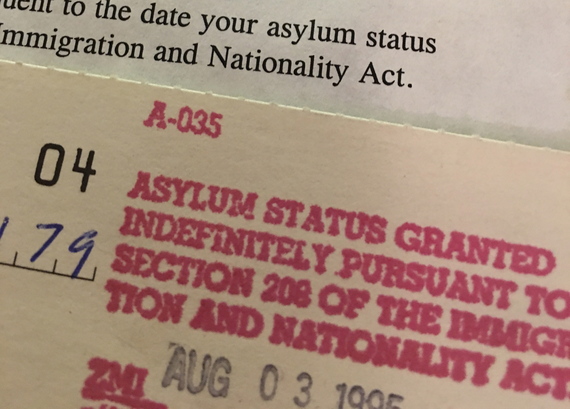I am a proud Cuban. I am a Cuban who was born and raised on the island. I was still under the spell of my college dream and fantasy years when I arrived to the United States and asked for political asylum.
The American government granted a visa to me that did not allow me to apply for the Cuban Adjustment Law, a program that enables Cuban immigrants to qualify and obtain welfare benefits and apply for a permanent resident status a year after arrival to the U.S.
Therefore, my immigration process was tedious and long.
I still remember how the immigration judge asked me persistently why he should grant me special refugee status. At that time, I was too young and politically naive to navigate political battles. I do not know how I was able to convince him, but I became a political refugee in 1995.
Because of my immigration status, I could not return home and was repeatedly denied a visa. My grandparents passed away in Cuba and my only comfort was saying goodbye through my memories. Spain became the new place for short family reunions as my parents decided to return to my grandparent's homeland.
Having lived now more than 20 years in U.S., I have been able to see how the Cuban Adjustment Act has been the hope and light for a better future for Cubans fleeing repression and seeking freedom of expression, but I have witnessed as well how others have abused the program's benefits.
The Cuban Adjustment Act is a privilege. No other immigrant groups receive this unique red carpet treatment as soon as they arrive to this country. This program is an aid that should be short-term help for Cubans to resettle, not a burden cost to U.S. taxpayers.
How can one justify the receipt of refugee status based on political persecution and then travel to Cuba as soon as the green card is granted?
How can one justify that they should qualify for welfare benefits when they have never worked in the U.S., and then use a portion of that money to travel to Cuba or send it to relatives abroad?
Did you have think twice before finding the answers?
Senator Marco Rubio, R-FLA, has urged Congress to end this decades-old program. Other Cuban-American legislators have as well, but to correct this legislation will require more battles.
"This current policy is not just being abused, it's hurting the American taxpayer", pointed out Marco Rubio, a son of Cuban immigrants.
There are reports that indicate that financial support for Cuban immigrants exceeded $680 million in 2014 and those numbers, by the way have quite frankly gone up since then, according to the Sun Sentinel, a Florida newspaper.
Many Cubans are humanely entitled to obtain protection when they claim and prove political oppression and torture. Without inquiring, they should receiving the kindness of the law. However, those coming for other reasons and not alleging political persecution should be fairly rejected.
Times are relentless. Obama has launched a new chapter. The "normalization" process between Cuba and the U.S. has begun, and will require new mentalities, attitudes and measures. Some of these will be impacting the last of great benefits granted for decades.
We live in a country that proudly proclaims respect for human rights. Anyone seeking political asylum will be protected.

 Photo credit: Hirania Luzardo
Photo credit: Hirania Luzardo